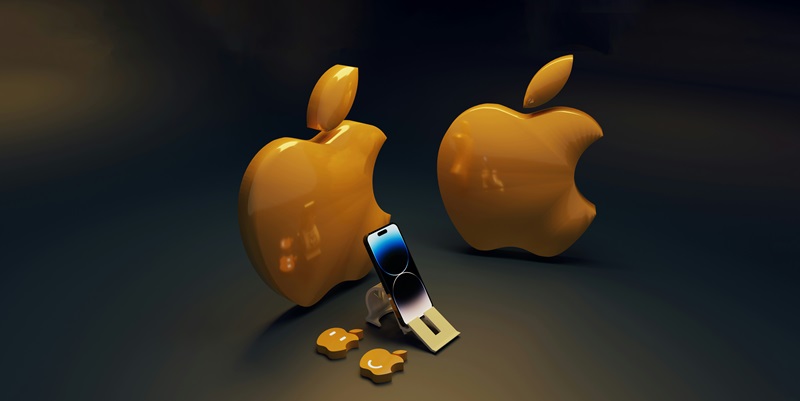In a significant stride towards the future of technology, Apple Inc. has been integrating artificial intelligence (AI) across its range of devices, aiming to create smarter, more intuitive user experiences. By making devices capable of learning from and adapting to user behavior, Apple is ensuring that it stays ahead in a competitive market teeming with companies heavily investing in AI technologies. As the need for enhanced user experiences grows, Apple’s strategic move to incorporate AI aligns perfectly with its commitment to innovation and user satisfaction.
The Growing Demand for Smarter Devices
The tech industry is witnessing a surge in demand for smarter devices, driven by the rapid advancements in AI technology. Companies such as Google, Amazon, and Microsoft have already made substantial investments in AI to refine their product offerings, setting a high bar for the entire industry. In this competitive landscape, Apple must continuously innovate to meet the rising expectations of its consumers who desire products that simplify and enrich their everyday lives. AI has emerged as a pivotal tool in realizing this goal, due to its remarkable ability to create personalized and efficient user experiences.
By integrating AI, Apple is working towards designing products that learn from user habits, adapt to individual preferences, and provide personalized recommendations. This approach doesn’t just enhance the functionality of Apple devices; it makes them feel more tailored and personal to each user. The goal is for Apple products to become not just tools, but intelligent companions that can predict and cater to users’ needs in real-time. Consequently, this commitment to weaving AI intricately into the fabric of its devices underscores Apple’s vision of creating products that set new benchmarks in user experience.
AI-Powered Features in Apple Devices
The implementation of AI in Apple devices can be seen through a number of groundbreaking features and innovations that have been introduced over the years. Perhaps one of the most recognizable AI features in Apple’s lineup is Siri, the company’s virtual assistant. Launched in 2011, Siri revolutionized the way users interact with their iPhones by offering voice-activated assistance for a wide range of tasks. From setting reminders to controlling smart home devices, Siri has set a new standard for virtual assistants and continues to evolve with time.
In the realm of photography and image processing, AI has immensely augmented the capabilities of Apple’s camera technology. Apple’s camera software leverages AI to identify scenes, optimize lighting, reduce noise, and automatically edit photos to produce high-quality images. One standout feature that demonstrates this is Night mode, which uses AI to significantly improve low-light photography by capturing multiple images and combining them to amplify details that would otherwise be lost. These AI-driven enhancements have set Apple’s camera system apart, offering users a superior photography experience right from their smartphones.
Enhancing Security with AI
Apple has made significant strides in utilizing AI to bolster the security of its devices, with one of the most notable examples being Face ID. This advanced facial recognition technology employs AI to create highly detailed maps of users’ faces, allowing for instantaneous and secure recognition. The AI system powering Face ID is designed to learn and evolve over time, adapting to subtle changes in a user’s appearance and becoming increasingly difficult for unauthorized individuals to bypass. Such innovations underscore Apple’s commitment to providing robust security features that protect users’ data and privacy.
An equally important aspect of Apple’s approach to AI and security is its emphasis on data privacy. Unlike some other tech companies that rely heavily on cloud processing, Apple ensures that much of the AI processing is conducted directly on the device. This localized approach mitigates the risks associated with cloud storage and ensures that user data remains private and secure. By prioritizing on-device processing, Apple reassures its users that their personal information is handled with the utmost care, fostering greater trust in its AI-driven features.
AI in Health and Fitness Tracking
Apple has also been a pioneer in integrating AI into health and fitness tracking, particularly through the Apple Watch. The advancements in AI have enabled the Apple Watch to monitor and analyze a wide range of health data, providing users with comprehensive insights into their well-being. AI features in Apple Health, for example, can track sleep patterns, heart rate, and stress levels, offering users a holistic view of their health. This technology not only empowers users to make informed decisions about their health but also helps them maintain better control over their wellness by providing personalized recommendations based on the collected data.
The incorporation of AI into health and fitness tracking significantly enhances the functionality and value of Apple devices. By offering tailored health insights, the Apple Watch and other devices serve as more than just digital tools; they become essential companions that contribute positively to users’ overall well-being. This focus on personalization ensures that users can better understand their health metrics and take proactive steps to improve their lifestyle, showcasing Apple’s commitment to making a meaningful impact on users’ lives through technology.
Personalized Recommendations and User Experience
Apple Inc. is making significant strides in technology by integrating artificial intelligence (AI) across its range of devices. By doing so, Apple aims to create smarter and more intuitive user experiences. This integration allows Apple’s products to learn from user behavior and adapt accordingly, making their devices not only more efficient but also more personalized to individual users. This strategic initiative ensures Apple stays ahead in a competitive market where many companies are heavily investing in AI technologies. The drive for enhanced user experiences is increasing, and Apple’s decision to incorporate AI aligns perfectly with its dedication to innovation and user satisfaction. Apple’s use of AI extends across various features, from Siri’s advanced voice recognition to the iPhone’s improved camera functionalities. These AI-driven enhancements demonstrate Apple’s commitment to staying at the forefront of technology. By focusing on AI, Apple not only meets current user needs but also anticipates future demands, reinforcing its position as a leader in the tech industry.

